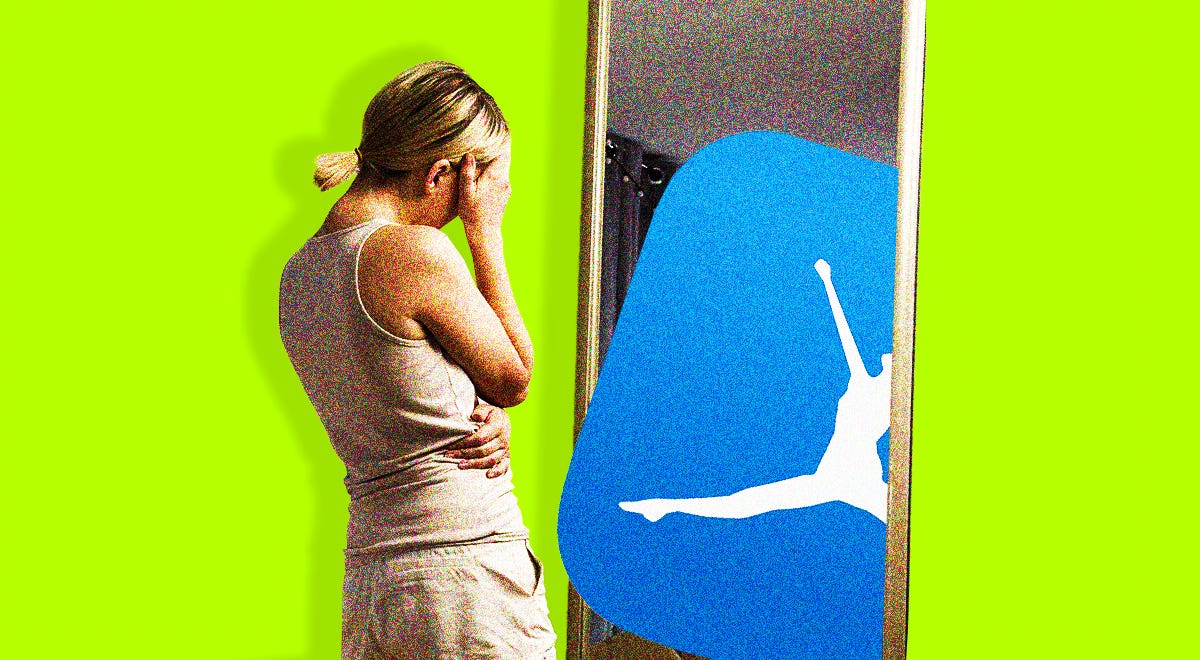
If you're into health, chances are you've encountered fitness tracking apps. From Fitbit to FatSecret, these apps help users monitor everything from food intake and heart rate to steps and sleep cycles.
Some, such as Nike Training Club, offer workout plans. Others, such as MyFitnessPal, Lose It!, Cronometer, and Yazio are commonly used to track nutrients, gauge portion sizes, and manage calories and weight. For many, these tools can be a godsend for health management and achieving fitness goals. Yet for others, these apps can quickly become a slippery slope, fostering obsessive, disordered eating behaviors. Certain users may become overly focused on hitting specific numbers and lose touch with their natural hunger cues, psychologists warn.
A recent study out of Australia’s Flinders University found that more than 200 million people use MyFitnessPal to track their meals, calories, and exercise. While these apps are marketed as tools to improve health, they may have inadvertent negative effects. Researchers found that pressure to meet goals, concerns about body image, and feelings of guilt were common among users. Psychologists say that when these issues begin to interfere with other aspects of life, it’s a major warning sign.
Researchers Isabella Anderberg, Eva Kemps and Ivanka Prichard reviewed 38 studies to examine the connection between these apps and the risk of users developing disordered eating behaviors. While no causal conclusions could be drawn, their review highlighted clear correlations between app use and disordered behaviors: for instance, a 2019 study on female participants with eating disorders found that nearly three-fourths of them believed MyFitnessPal at least "somewhat" contributed to their condition.
"Studies provide evidence that users of diet and fitness apps report higher levels of dietary restraint, body dissatisfaction, eating disorder symptoms, psychosocial impairment, and engage in greater levels of compulsive exercise compared to less frequent app users or non-users," they noted in the study published earlier this month in the peer-reviewed journal Body Image.
I was particularly interested in the study because I have used MyFitnessPal for years to track macronutrients, critical for achieving body composition goals in the sport of bodybuilding. In my last show, I hit the stage with around nine percent body fat—due to extensive tracking to help create a caloric deficit, while maintaining high protein levels, over a set period of time. It is not a sustainable physique, and I work closely with my coach afterwards to keep a close eye so we can "reverse" after show day, gradually adding back calories to regain a healthy layer of fat.
A weird thing happens when you develop macro monomania (as I do when in the weeks ahead of a competition). The body looks snatched, but life kinda sucks. Eating out is a no-go. Date nights are less fun. I’m sipping water instead of wine. A lot of times I just leave the room to avoid snacky temptation.
It’s why in the off-season, I take a more relaxed approach to tracking. I still loosely log macros, ensuring I hit my protein goals, eat plenty of carbs, and keep fat relatively low. Do I measure every gram? No. Do I miss plenty of days? Hell yes.
Cynthia M. Bulik, founding director of the Center of Excellence for Eating Disorders at the University of North Carolina at Chapel Hill, points out that for some people—like those on GLP-1s who may not have an appetite—tracking apps can be a useful reminder to eat or to increase protein intake, preventing muscle loss.
But, she warns, these tracking devices can also be “catnip for people who are obsessive,” leading some to rely on the app to dictate their food choices rather than listening to their body's signals. Some even feel hungry but don't eat because the app says they've already reached their limit. “That’s a recipe for disaster.”
My coach, Tina Peratino, a retired physique competitor, no longer partakes in the practice of “tracking,”
“I’ve personally moved away from tracking because I know how to eat,” she tells me. “After years of focusing on protein, vegetables, and balanced meals, my habits are ingrained. Occasionally, I might check in for a quick reality check, but I don’t need an app telling me how to eat every day.” Jen Widerstrom, one of the head coaches for Arnold’s Pump Club, sees the nutrition tracker as a useful tool—like training wheels for getting a better handle on nutrition. However, she cautions against relying on it forever. “Once you get your awareness, take the training wheels off, ditch the app, and see how you do.”
“For any measurement or tracker—whether it’s a scale, an Oura ring, or MyFitnessPal—these are guides for you. They’re tools, not a gauge of your value,” she says.
Widerstrom admits she still uses the app occasionally. Recently, after a vacation filled with great food and cocktails with friends, she used MyFitnessPal to track her food for three days to get her nutrition back on course. “It helped me get the protein back in, the alcohol out. I just wanted the accountability,” she says. “And most importantly, I used it without judgment.”




Great post - I (Avery) use MFP to keep track of protein and make sure I’m eating enough of the right stuff to support my training. With four little kids, things can get chaotic, so the app is a nice way to keep track for myself!
Yup. Guilty of getting too tracky!! Done with that!